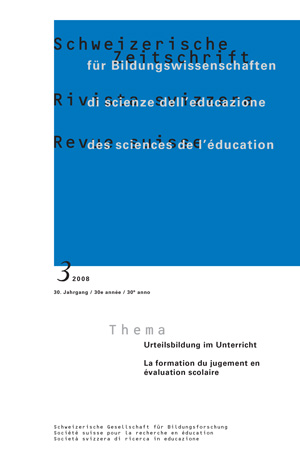Teacher Assessments of Individual Student Competence at the Transition to Secondary Education: The Role of Student and Class Characteristics
DOI:
https://doi.org/10.24452/sjer.30.3.4801Keywords:
Social background, Big-Fish-Little-Pond-Effekt, transition, assess- ment, learning competence, elementary school,Abstract
The transition to the different tracks of the secondary system is one of the major changes of status in young people’s lives. This article examines teachers’ assessments of individual student competence at the end of elementary education, based on a sample of 976 students approaching the end of elementary schooling in Berlin. In addition to the predictive effects of individual achievement characteristics and social background indicators, the study examined whether teachers’ assessments of student competence were systematically related to class-mean achievement. Multilevel analyses showed that, as expected, achievement indicators and socioeconomic status were positively associated with teachers’ assessments of student competence. Moreover, when individual achievement was controlled, the regression coefficient of class-mean achievement on teachers’ assessments of student competence was negative. This finding can be interpreted as a reference group effect.
Downloads
Downloads
Published
Issue
Section
License

This work is licensed under a Creative Commons Attribution 4.0 International License.



